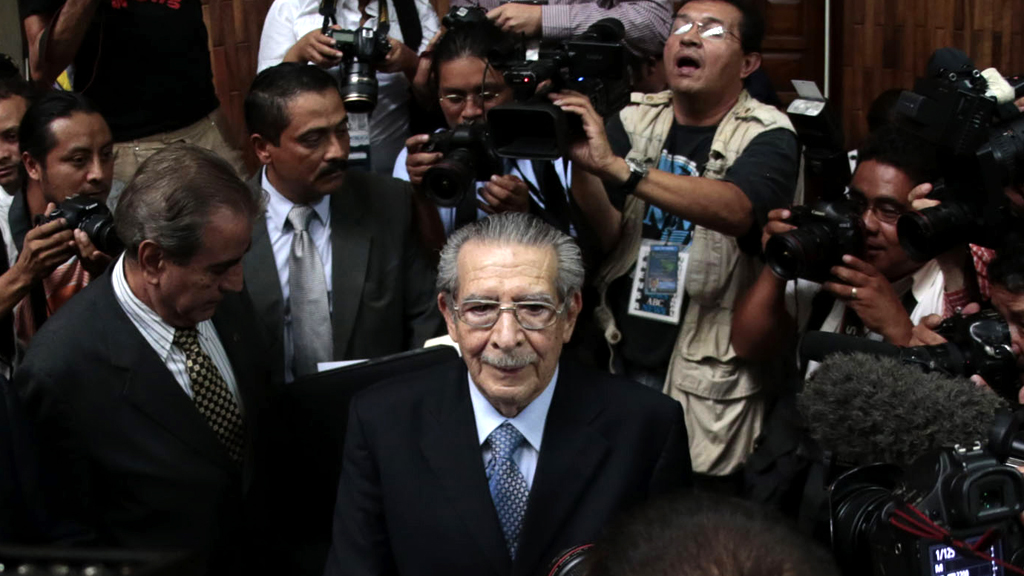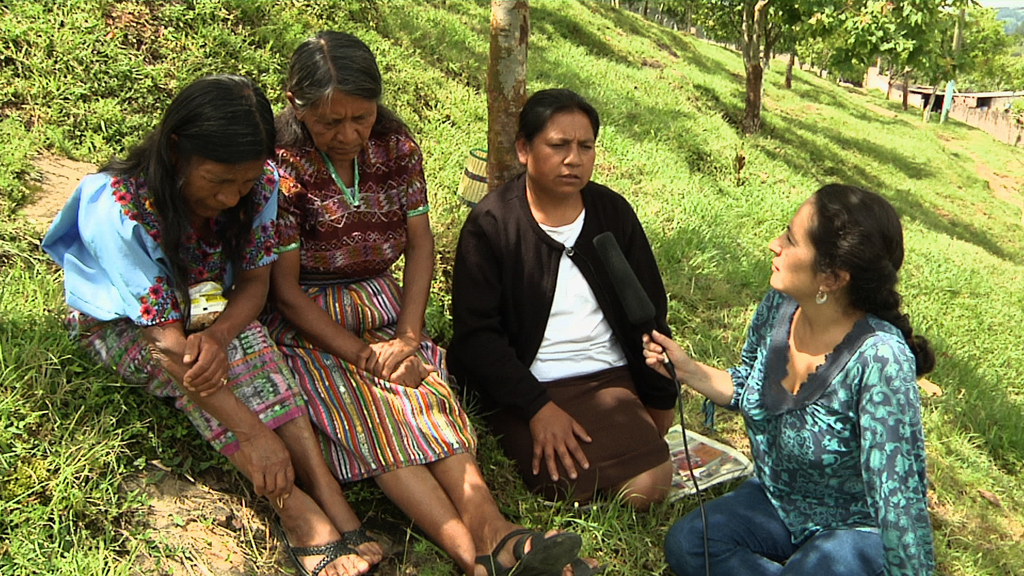Guatemalans ‘devastated’ after genocide ruling overturned
Days after the historic conviction of former leader Rios Montt for genocide and war crimes, Guatemala’s highest court throws out the ruling. Survivors tell Channel 4 News of their devastation.

The decision by the constitutional court overturns the first genocide conviction of a former leader in his own country, and has thrown the trial into disarray.
Guatemala’s highest court ordered that trial proceedings should be put back to where legal arguments stood mid-April to solve what judges said were legal difficulties.
The ruling comes just 10 days after the former military leader Efrain Rios Montt, 86, was convicted.
While he was head of state for 17 months between 1982 and 1983, 1,771 people were killed – most of them Ixil Mayans – in what is thought to have been one of the most violent periods of the country’s 36-year civil war.
What I believe is that living a healthy, happy life is my way to resist. But I have to say that it has been very hard Ana Lucia Cuevas
After two months of testimony, the three-judge panel sentenced Montt to 80 years in prison for presiding over the killings. He denies all charges.
But now the constitutional court has said the trial has to be restarted from where proceedings stood on 19 April, when Montt’s defence team walked out of court in protest and the former general rejected the court appointed public defence lawyer.
According to its new ruling, the previous guilty verdict and sentence are now annulled and do not apply. He remains in a military hospital where he was moved after spending three days in prison following the original verdict.
‘Devastated and shocked’

One of the survivors of the war, who now lives in Manchester, told Channel 4 News that the recent ruling had left her and other families of survivors “devastated and shocked”
“I am trying to cope with the really sad feelings that the news has brought us,” said Ana Lucia Cuevas (pictured left), now an artist and filmmaker.
“When on 10 May we heard of the conviction, physically I felt a lift for a long time. We started to feel an incredible peace.”
That all changed after the court’s annullment. “What I believe is (that) living a healthy, happy life is my way to resist. But I have to say that it has been very hard,” she said.
A UN-backed truth commission found that some 200,000 people were killed or disappeared during Guatemala’s civil war between 1960 and 1996. More than 80 per cent were of indigenous Mayan descent.
During the two months of the Montt trial, the court heard testimony of massacres and war crimes. But despite attempts at reconciliation and holding people to account, the Guatemalan armed forces have been accused of witholding information on crimes.
The current Guatemalan president is a former military general.
Campaigning for justice

Among the hundreds of thousands of people who disappeared was Ms Cuevas’s brother Carlos (pictured right).
Ms Cuevas herself went into exile in Puerto Rico with her mother and sister in 1984 – the same year he went missing. Her brother’s wife, Rosario, stayed in Guatemala and set up a support group for families of the disappeared.
Ten months after her husband went missing, she was captured along with her two-year-old baby and brother.
“The following day, they were found in the bottom of a ditch,” Ms Cuevas told Channel 4 News. “Since then, we have been campaiging for justice”.
Amnesty International condemned the annulment of the original ruling. “This ruling is a devastating blow for the victims of the serious human rights violations committed during the conflict,” said Sebastian Elgueta, Amnesty International’s researcher on Guatemala.
“The legal basis for the ruling is unclear, and it is uncertain how the trial court can hit the reset button to get back to a point in mid-April. What is clear is that the constitutional court has just thrown up formidable obstacles to justice and accountability for a harrowing period in Guatemala’s recent history.”
-
Latest news
-
As India goes to the polls in the world’s largest election – what do British-Indians think?6m

-
Tees Valley: Meet the candidates in one of the biggest contests coming up in May’s local elections4m

-
Keir Starmer says public sector reform will be a struggle7m

-
Nicola Sturgeon’s husband Peter Murrell charged with embezzlement of funds from SNP1m

-
Ukraine might finally get $60billion in American weapons and assistance to defend against Russia3m

-




